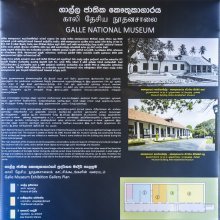Varaya, Varāya: 3 definitions
Introduction:
Varaya means something in Hinduism, Sanskrit, Marathi, Jainism, Prakrit. If you want to know the exact meaning, history, etymology or English translation of this term then check out the descriptions on this page. Add your comment or reference to a book if you want to contribute to this summary article.
Images (photo gallery)
Languages of India and abroad
Marathi-English dictionary
Source: DDSA: The Molesworth Marathi and English Dictionaryvarāya (वराय) [or यी, yī].—f (Or varāī) A gold coin, a pagoda.
Marathi is an Indo-European language having over 70 million native speakers people in (predominantly) Maharashtra India. Marathi, like many other Indo-Aryan languages, evolved from early forms of Prakrit, which itself is a subset of Sanskrit, one of the most ancient languages of the world.
Sanskrit dictionary
Source: Cologne Digital Sanskrit Dictionaries: Monier-Williams Sanskrit-English DictionaryVarāya (वराय):—[from vara] [Nominal verb] (only yita n. [impersonal or used impersonally]) to be or represent a boon, [Kathāsaritsāgara]
Sanskrit, also spelled संस्कृतम् (saṃskṛtam), is an ancient language of India commonly seen as the grandmother of the Indo-European language family (even English!). Closely allied with Prakrit and Pali, Sanskrit is more exhaustive in both grammar and terms and has the most extensive collection of literature in the world, greatly surpassing its sister-languages Greek and Latin.
Prakrit-English dictionary
Source: DDSA: Paia-sadda-mahannavo; a comprehensive Prakrit Hindi dictionary1) Varaya (वरय) in the Prakrit language is related to the Sanskrit word: Varaka.
2) Varaya (वरय) also relates to the Sanskrit word: Varāka.
Prakrit is an ancient language closely associated with both Pali and Sanskrit. Jain literature is often composed in this language or sub-dialects, such as the Agamas and their commentaries which are written in Ardhamagadhi and Maharashtri Prakrit. The earliest extant texts can be dated to as early as the 4th century BCE although core portions might be older.
See also (Relevant definitions)
Starts with: Varayakshini, Varayamana, Varayaniya, Varayati, Varayatra, Varayattirai.
Ends with (+3): Anavaraya, Anuvaraya, Caluvaraya, Celvaraya, Civaraya, Devaraya, Duvaraya, Immadidevaraya, Javaraya, Kavaraya, Kovaraya, Krishnadevaraya, Nivaraya, Padivaraya, Raghavaraya, Samcivaraya, Sarivaraya, Shri Krishna Deva Raya, Tumbuvaraya, Tvaraya.
Full-text: Varaka, Vara, Cetas, Abhirupa, Api, Varaha, Vri, Sam.
Relevant text
Search found 11 books and stories containing Varaya, Varāya, Vāraya; (plurals include: Varayas, Varāyas, Vārayas). You can also click to the full overview containing English textual excerpts. Below are direct links for the most relevant articles:
The history of Andhra country (1000 AD - 1500 AD) (by Yashoda Devi)
Part 28 - Other Pallavas < [Chapter XII - The Pallavas]
Rig Veda (translation and commentary) (by H. H. Wilson)
Garga Samhita (English) (by Danavir Goswami)
Verse 6.2.16 < [Chapter 2 - Residence in Śrī Dvārakā]
Verse 1.15.48 < [Chapter 15 - Revelation of the Universal Form to Nanda’s Wife]
Verse 3.9.30 < [Chapter 9 - The Birth of Śrī Girirāja]
Chaitanya Bhagavata (by Bhumipati Dāsa)
Verse 3.2.114 < [Chapter 2 - Description of the Lord’s Travel Through Bhuvaneśvara and Other Placesto Jagannātha Purī]
Manusmriti with the Commentary of Medhatithi (by Ganganatha Jha)
Verse 9.88 < [Section IX - The Marriage of Girls]
Satapatha-brahmana (by Julius Eggeling)
Kāṇḍa XIII, adhyāya 8, brāhmaṇa 4 < [Thirteenth Kāṇḍa]
